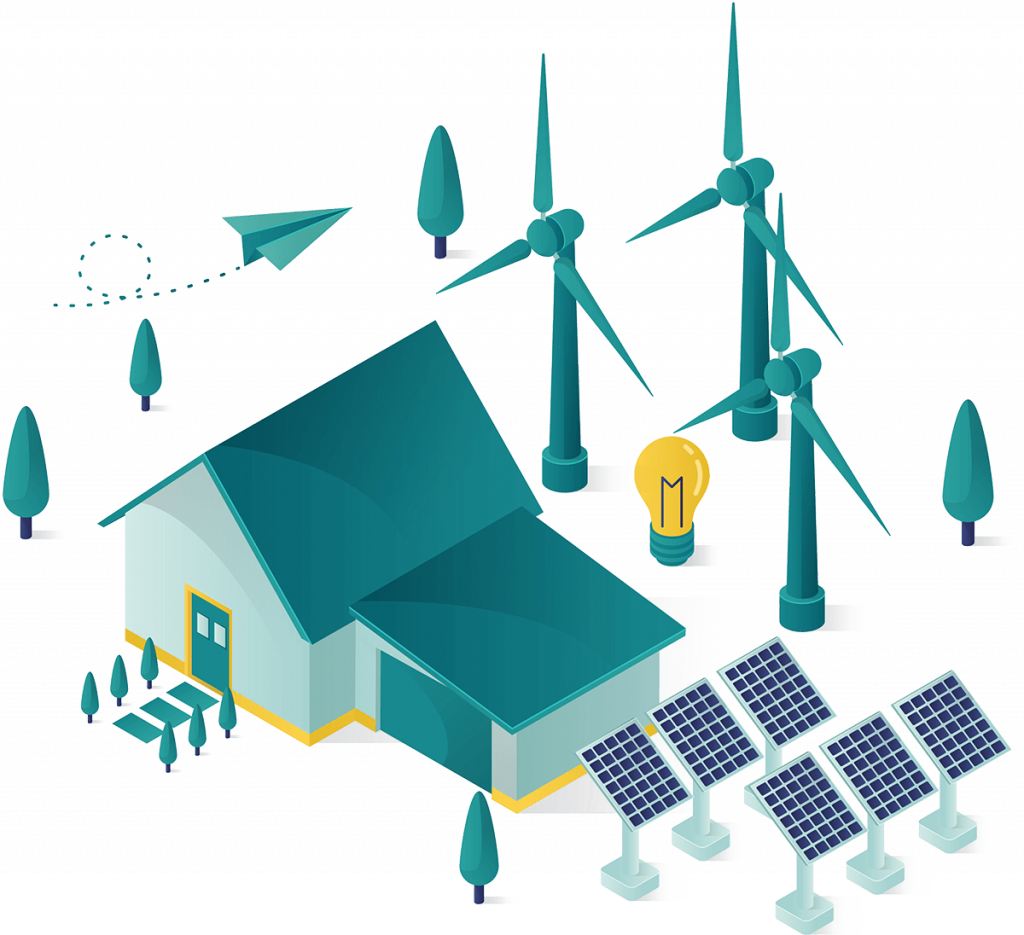| Generation Year | Estimated Net Revenue |
|---|

Alberta Commercial and Residential solar
Get paid for solar carbon credits
Does your property have solar? Is it in Alberta?
Earn income from your carbon credits.
Residential and commercial solar generators in Alberta earn thousands of dollars from carbon credits. You can too.
You are eligible if:
Your solar site is in Alberta.
Your site is operational.
You have not received a provincial or city grant that took away your credits.
Your site is less than 5,000 kW capacity.
- You have an inverter that Rewatt supports. The list of manufacturers is here.
Do you have a utility-scale energy project instead? E-mail us about this program.

Join the Alberta Commercial and Residential Solar Credits Program
We make it easy, profitable, and automatic to start earning.
- Rewatt Power aggregates your energy generation site into a “collective power plant” with other members.
- We sell your credits to buyers with the highest price, and give back your earnings.
- Site members earn income and share the costs of verification and data reporting through volume and automation.
Generate income you could not earn before, at ultra-low risk
Earn Thousands of Dollars
Gain returns of up to 26% on your solar investment over the term.
Profit from Rising Carbon Prices
Regulated prices to increase $15 per tonne every year, from $50 in 2022 to $170 in 2030.
5 Minute Registration
Take minutes to earn thousands. Complete an online application providing site details, ownership documents, and a data connection to your site.
Easy and Automated.
One-time setup. No hassle to gather and send your energy bills. Eliminate human error.
Estimated Net Earnings Calculator
Specific Yield is how much energy (kWh) is produced for every kWp of module capacity over the course of a typical or actual year.
The estimate above is based on the following assumptions:
1. A full year of solar production.
2. You own 100% of the rights to the environmental credits from the solar system.
3. The credit price is either the target or expected discount to the Alberta TIER Carbon Price, which is expected to increase by $15 per year, reaching a maximum of $170 per tonne (Credit).

